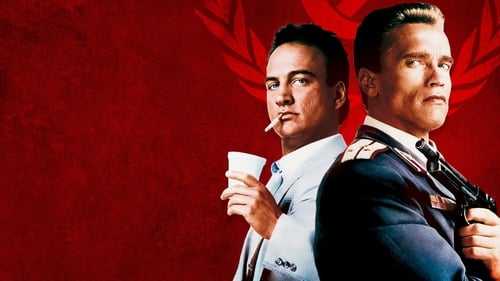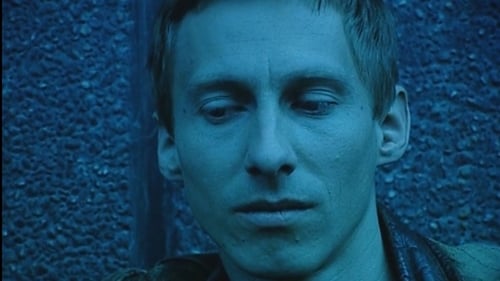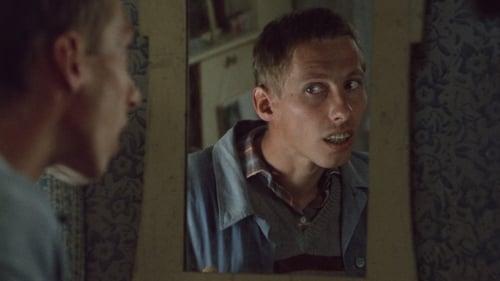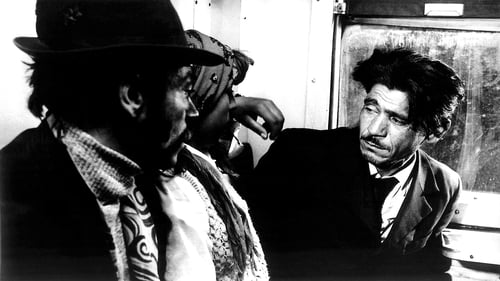János Bán
출생 : 1955-10-04, Győr, Hungary

Józsi, lehallgató

Ernõ

Béla

Frici

Farkas
El ángel de Budapest (Angel of Budapest) is a Spanish 2011 television World War II-Holocaust miniseries based on the book "Un español frente al Holocausto" (A Spanish against the Holocaust) written by journalist and radio executive director Diego Carcedo. The plot focuses on Ángel Sanz Briz, a Spanish ambassador in Hungary during World War II who helped to save the lives of thousands of jews from the Holocaust by lodging them in Spanish safe houses in Budapest.

Kosztin
Gabriel Ventuza lives the peaceful life of a herbalist, growing and cultivating medical herbs in Italy. One day he receives an order from his older brother who is just out of prison for one day. Gabriel should go to the remote little town of Bogdanski Dolina in Far-Eastern Europe, the place of their childhood and take out the mortal remains of their father, the late people smuggler, the famous Victor Ventuza. Gabriel leaves his "eventless" life behind and goes to accomplish his mission. He is robbed on the way, his belongings, passport, money and even his clothes are stolen and finds himself in a small closed town surrounded by hills of stinking toxic waste, where strange priests rule and fear keeps people quiet, producing a general atmosphere of insecurity.

ÁVH-s
Some of the most symbolic moments of the 1956 Revolution in Hungary were the tooth-and-nail battles fought by the so-called 'Pest Lads' who dared to defy odds by taking on the panzers of one of the world's superpowers. The story begins on October 23rd, 1956 and ends on November 4th of the same year. Juli is Totya's girlfriend but also loves Gábor. Their love triangle will have to endure the trials and tribulations of these stirring times. A group of boys living in the outskirts of the capital are playing football in abandoned lot when Juli, a ticket inspector, brings news of protests breaking out in the city. Only Gábor accompanies her into town and together they become part of this historical event. At dawn, when the boys too come under fire from Soviet forces, they decide to join in the fight.

Berecz Ede

Bán
At 15 he and his family became victims of state terror. At 16 he became a freedom fighter to participate in the 1956 Revolution against Soviet oppression. At 17 he is betrayed and arrested by the dreaded Secret Police (AVH). Now he has to spend the remainder of his life in a political prison, called Hell's Hallway, to reach the legal age of 18 before his death penalty can be carried out. Peter Mansfeld was 18 when he was unjustly executed by the totalitarian regime of Hungary. Today he is remembered as one of the national heroes of Hungary.

Rezső
The Hungarian version of the "The Seven Samurai" and "The Magnificent Seven".

Béla

Poetic movie about 3 generations of women.

Enikős and Dorkas marriage is unbearable. Hysterical, cruel and humiliating scenes are enacted in front of the childrens eyes, while the childless Barbara is held by her husband, the painter, to be a toy and sometimes a painting screen.

The fates of famous slovak individuals in history bring strong dramatic stories and a witness to the age in which they lived. Tragic and complicated life of the physician Albert Škarvan, who was a friend and admirer of the great russian writer Leo Nikolayevich Tolstoy, is also a noteworthy confrontation of worldview of two individuals in times, whe pacifist ideas sharply colided with the reality

Aljoscha
Lipstick strives to depict the inner conflicts of the protagonist Vesna as subjectively as possible. Vesna, apparently unmoved by the armed conflicts in her homeland Yugoslavia, leads a happy-go-lucky life. A form of denial, the causes of which should be explored. Her visit in Budapest and therefore her compromise with her possibly true, though repressed, identity, evokes a feeling of happiness for a short time. The next morning, reality catches up with her again. She is taken off the train and is forced, since her passport and Austrian visa have both expired, to assume a new identity. Despite the futility of her undertaking, she refuses to make a statement concerning her person while in jail. What remains is the memory of a short-lived feeling of emotional success by delaying the course of events. The suggestion to consider a denial while in a condition of statelessness.


International peace conference, events take place in the last week of 1899. Tragic love story between Vilma, daughter of the Austro-Hungarian envoy/ambassador, and Zoluk of Montenegro.

Hiesztakov

Béla
Hungary's submission for the Academy Award for Best Foreign Language Film in 1990

Officer
1980년대 말, 소련의 문호가 개방되기 시작하고 서방의 자유화 문물이 소련사회에 유입되기 시작하자, 그 부작용의 하나로 모스크바 뒷골목에서 마약이 밀거래 되기 시작한다. 덕분에 바빠진 모스크바 경찰국의 당코 형사는 그루지야인들과 이루어진 마약범죄단의 두목 빅토르 라스코를 검거하려다 친한 동료를 빅토르의 총에 잃는다. 미국으로 도주하여 대규모 마약거래를 계획중이던 빅토르가 교통위반으로 시카고 경찰에 입건되었다는 전문이 들어온 날, 모스크바 경찰국은 그를 압송해 오라는 임무를 주어 당코를 미국으로 보낸다.

Emil

The story of a murder out of jealousy. After his release from prison, the perpetrator tells the story of his marriage and tries to understand the reasons for his actions.

Géza
The sad tale of a proletarian malcontent ensconced in a monstrously depressing housing project who—even less effectually than the heroes of Bald-Dog Rock—attempts to change his life. Purchasing a power drill and slinging it across his shoulder like the anti-hero of a spaghetti western, he turns entrepreneur, boring holes in his neighbors’ walls so that they can hang mirrors or pictures.

Otík
The movie's main storyline follows the life of Otík, a mentally retarded young man, in a tight-knit village community. The sweet-tempered Otík works as an assistant truck driver with Mr. Pávek, his older colleague and practical-minded neighbor. Pávek's family takes care of Otík, whose parents are dead. However, the two coworkers become at odds over Otík's inability to perform even the simplest tasks. Pávek demands that Otík be transferred to assist another driver, who happens to be a choleric and suspicious man named Turek (Turk in Czech). Rather than work with Turek, Otík decides to accept an offer of employment in Prague, but finds he does not fit in to the city life. After discovering that the transfer of Otík to Prague was a trick by a crooked politician to get a deal on Otík's large inherited house, Pávek agrees to give Otík a second chance and retrieves him from the city to resume their work together.

1894. The mortal remains of Lajos Kossuth are brought home from abroad, the railways are lined with people with their hats in hand, and among them stands the teenager Imre Tányér. 1910. The grown-up Imre undertakes the task to solve the question unsolved since 1848-49, i.e. the transformation of peasant life. He fights for the rights of his class, for justice, for human dignity in a society distorted, backward and built on inequality.

Zoli, a szerelõ
The parents of Kabala (Lucky Charm) and Facsiga (Wooden Top) are divorced. Kabala, an adolescent girl was awarded to the father, while Facsiga, the younger brother was awarded to the mother, but they do not really belong to anyone. The two children want to live together at all costs.

Brigádvezetõ az útépítésen
Balog Mihály, the Gypsy man from Szabolcs works in Budapest. That is where he is notified that his young wife died. Again he behaves differently from his fellow-men in the Koportos Gypsy settlement: he wants to give a beautiful, rich burial ceremony to his wife.

Father
The film deals with the relation of a father and his son. They are carrying a huge mirror to the fifth floor. To achieve their goal they must work as a team. On the way, their family life is also revealed.














